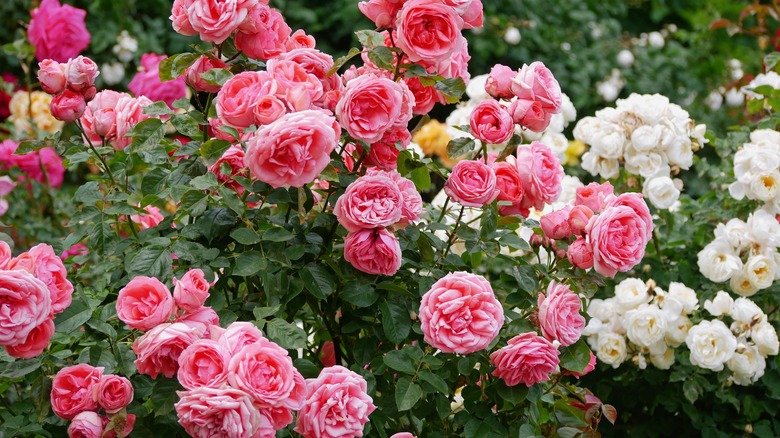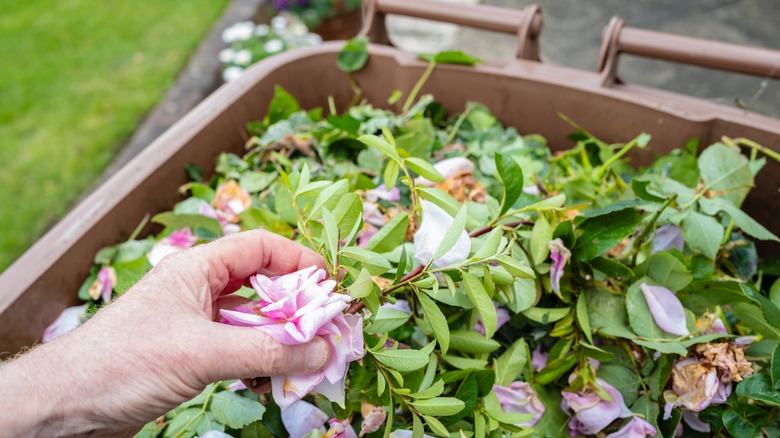Why You Should Leave Roses And Other Thorny Plants Out Of Your Compost Pile
Composting at home has some big benefits and is a great way to recycle green waste to reuse it in your own garden. There are, however, some dos and don'ts when it comes to what can go in compost to maintain its health — and be safe for a person to use. Just because something was living, doesn't necessarily mean it belongs in the compost, so if you're planning on making your own DIY compost, be sure to research what substances are optimal for use. And there is one such substance you might want to avoid that may surprise you: Roses, and other thorny materials, should be something you set aside and away from your compost when it comes to green waste. While rose parts are fine in your compost, other pieces can actually pose a threat to you, the gardener, later on down the line when you use the compost in your garden.
Roses and other thorny plants, particularly their stems and the thorns themselves, take a much longer time to break down than other plant materials, if they even decompose at all. Since the thorns will remain intact while other material breaks down into that rich compost that gardeners seek for their plants, it's easy to forget that prickly bits remain behind. When you reach for the compost, you may be at risk of injuring yourself on the persistent thorns. While it's an annoyance to be pricked on the best of occasions, it can cause real injury and is dangerous at the worst.
What part of the rose can go in the compost?
For roses, in particular, the thorns are really the biggest hazard for your compost pile, but that doesn't mean that other parts of the plant can't be added. Softer stems, sans thorns, are perfectly safe for the compost, as are the leaves and even the roots. While many agree that the actual blossoms are fine for the compost as well — and even claim that rose petals make the refuse pile smell all the more sweet — many gardeners caution not to compost flowers that appear to be diseased as they will affect the health of your compost for future gardening. Roses are quite susceptible to fungal diseases, like black spot or powdery mildew, so monitor both your plants and your own compost pile to see if adding any flowers is the right move for your garden.
Also, bear in mind that optimizing your compost health is as easy as incorporating other green waste substances that you have in and around your home. Your compost bin may be begging for leftover grass clippings, or could benefit greatly from those old cardboard boxes you have laying around. Composting should not feel intimidating, and as long as you look out for your garden's (and your own!) health and safety, that compost will help you grow some beautiful and/or tasty plants for the future.

